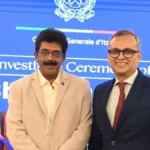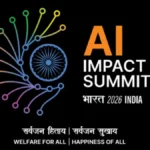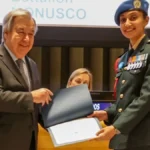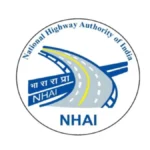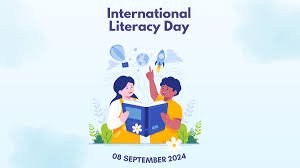Conference on Spectrum of Literacy Precedes International Literacy Day 2024
Introduction
In the lead-up to International Literacy Day 2024, a significant conference on the “Spectrum of Literacy” was held, underscoring the global efforts to address literacy challenges. This conference brought together policymakers, educators, and stakeholders to discuss innovative strategies and pathways to achieving comprehensive literacy. The event highlighted the crucial role of literacy in societal development and the need for inclusive education policies to ensure that all individuals, regardless of their socioeconomic backgrounds, have access to quality education.
Addressing Literacy Challenges
One of the central themes of the conference was addressing the persistent global literacy challenges. While considerable progress has been made in recent decades, millions of people, particularly women and children in underprivileged areas, still lack basic reading and writing skills. The conference explored various factors contributing to illiteracy, such as poverty, gender inequality, and lack of infrastructure, and discussed potential solutions, including governmental interventions, community-driven projects, and public-private partnerships.
Innovations in Literacy Education
The conference also showcased various innovations in literacy education, emphasizing the use of technology. Digital tools, such as online learning platforms, mobile applications, and educational software, were highlighted as effective ways to enhance literacy rates, especially in remote areas. Furthermore, the event highlighted how personalized learning solutions can be used to cater to the needs of diverse learners, making education more accessible and effective.
Role of International Organizations
International organizations, including UNESCO, played a pivotal role in the conference. Their contributions toward developing literacy frameworks and promoting literacy for all were highly commended. The event emphasized the importance of international cooperation to tackle the global literacy crisis, recognizing that only through joint efforts can meaningful and long-lasting change be achieved.
Call for Collaborative Action
The conference concluded with a call to action for governments, NGOs, and private stakeholders to collaborate in the ongoing fight against illiteracy. By pooling resources, sharing knowledge, and working toward common goals, it is possible to make significant strides in promoting literacy and achieving global education targets.
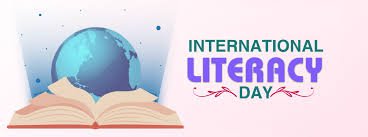
Why This News is Important
Literacy as a Cornerstone of Development
Literacy is a fundamental human right and a key component of development. Without basic literacy skills, individuals are deprived of opportunities for education and employment, which perpetuates cycles of poverty. The conference highlights the global commitment to eradicating illiteracy and promoting lifelong learning, essential for achieving sustainable development goals.
Global Literacy Challenges in Focus
The conference preceding International Literacy Day 2024 brings attention to the ongoing global literacy challenges. Despite advancements, millions of individuals, particularly in low-income and conflict-affected regions, remain illiterate. This news is essential for students preparing for government exams as it highlights the role of education in national policies and international cooperation, topics that are often covered in competitive exams.
Government Policy Implications
The outcomes of this conference may shape future government policies on education, making it highly relevant for candidates preparing for exams in sectors such as civil services, education, and social welfare. Understanding the role of policy frameworks in addressing literacy can provide a significant advantage in exams.
Historical Context
International Literacy Day: A Global Initiative
International Literacy Day, celebrated annually on September 8, was first declared by UNESCO in 1966. It was established to raise awareness about the importance of literacy for individuals, communities, and societies worldwide. Over the years, this day has been a platform for addressing literacy challenges and promoting educational initiatives aimed at enhancing reading and writing skills. The conference on the Spectrum of Literacy preceding the event in 2024 continues this tradition by focusing on contemporary issues and advancements in literacy education.
UNESCO’s Role in Global Literacy
UNESCO has been at the forefront of global efforts to promote literacy. The organization has developed various literacy frameworks and programs, such as the Global Literacy Campaign and the Education for All initiative, which have contributed significantly to improving literacy rates worldwide. This conference builds upon UNESCO’s legacy by bringing together stakeholders to explore innovative solutions to the literacy crisis.
Key Takeaways from the Conference on Spectrum of Literacy
| Serial No. | Key Takeaway |
|---|---|
| 1 | The conference emphasized the need for inclusive education to address global literacy challenges. |
| 2 | Innovative solutions, including digital tools, were presented as methods to enhance literacy rates, especially in remote areas. |
| 3 | The role of international organizations like UNESCO in promoting literacy was highlighted. |
| 4 | The event underscored the importance of international cooperation and collaboration in addressing the literacy crisis. |
| 5 | The conference concluded with a call for collaborative action among governments, NGOs, and private stakeholders to eradicate illiteracy. |
Important FAQs for Students from this News
1. What was the primary focus of the conference on the Spectrum of Literacy?
The conference focused on addressing global literacy challenges, showcasing innovations in literacy education, and discussing the role of international organizations in promoting literacy. It aimed to bring together stakeholders to explore solutions for improving literacy rates worldwide.
2. Why is literacy important for societal development?
Literacy is crucial for individual empowerment and societal progress. It enables people to access education and employment opportunities, participate fully in civic life, and improve their quality of life. High literacy rates are associated with better health outcomes, economic growth, and social stability.
3. What role did UNESCO play in the conference?
UNESCO played a significant role by providing frameworks and support for global literacy initiatives. The organization’s contributions were highlighted as crucial in developing literacy strategies and promoting educational reforms to address literacy challenges.
4. How can digital tools enhance literacy education?
Digital tools, such as online learning platforms and educational apps, can provide personalized learning experiences, reach remote areas, and offer interactive content. These tools help cater to diverse learning needs and make education more accessible.
5. What was the call to action at the end of the conference?
The conference concluded with a call for collaborative action among governments, NGOs, and private stakeholders. The aim was to pool resources, share knowledge, and work together to tackle the global literacy crisis and achieve educational goals.
Some Important Current Affairs Links





